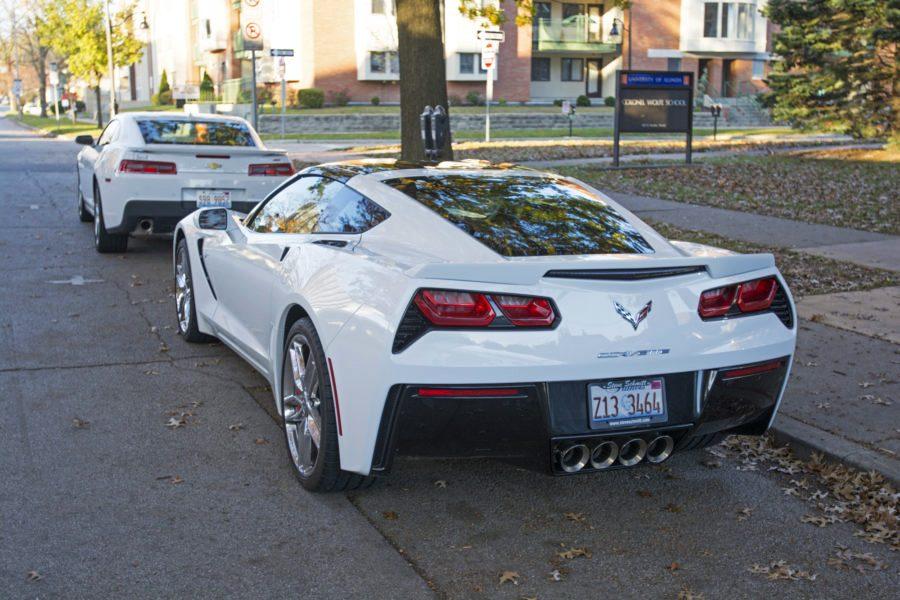International students not as wealthy as people think
Tyler Courtney | The Daily Illin
Students park their luxury cars all around campus on a daily basis.
August 29, 2016
n one of my large lecture classes, my professor asked for all the international students to raise their hands in order to demonstrate the diversity that is present at our University.
Immediately, nearly half of the students’ hands went up and their peers glanced around the room with surprised expressions on their faces.
It also quickly became clear how many of the international students sit among one another rather than dispersing and intermixing with students from the U.S.
“I’d say most of the students stay in their comfort zone and only step out when needed,” said Lucy Xi Lu, a senior majoring in actuarial science and economics, whose hometown is Beijing.
“People live in their circles with people from similar backgrounds,” Lu said.
Get The Daily Illini in your inbox!
This separation could be in part caused by stereotypes that some mistakenly have toward international students, such as the idea that every international student has a plethora of wealth at their disposal.
These misconceptions often lead to ill feelings or a sense of distance toward international students.
But this stereotype could not be further from the truth.
While some international students come from wealthy families, many struggle to pay off the debt of costly tuitions for students that hail from outside of the U.S.
“In my opinion, ‘extremely wealthy’ is not accurate,” Lu said. “You probably notice an international student driving a fancy sport car more than you notice an international student serving you food in the dining hall.”
According to the Research and Advisory Services group at World Education Services, which surveyed 1,600 international students in 2012, only about 49 percent of respondents were categorized into the “high financial resources” group, which the study determined by the amount of financial aid students would be seeking to support their college educations.
This means that less than half of the international students that were surveyed were “wealthy,” but somehow the popular stereotype has established a misconception that the majority of international students are extremely affluent.
You can see the misconception in action in University dining halls, where many international students work to earn money to put toward their tuition, books and housing costs.
The University employs many students, which allowing them to pay for parts of their tuition without sacrificing their educational performance by providing students with fair-income work without leaving campus.
It’s important to remember that the wealthy international students that we see on our campus are only the top one percent of the general population.
With all the expenses and hard work that go into providing education for international students, it’s difficult to see why they invest so much into going to university in the United States.
While the cost of education for international students is much higher than attending a university in their home country, they believe that the payoff from an overseas education helps to obtain success in their careers.
In addition, the extreme competition to get into universities in their home countries drives students away to different countries.
“In many countries, the family values education so much that the parents will sell their house, and take out loans to send their children abroad for better education,” Lu said.
The wealthy international students sometimes seen on campus only represent a fraction of the reality that many international students face, and it’s important to recognize their struggles instead of dismissing an entire demographic because of the surface appearances of a few.
Minju is a sophomore in LAS.







